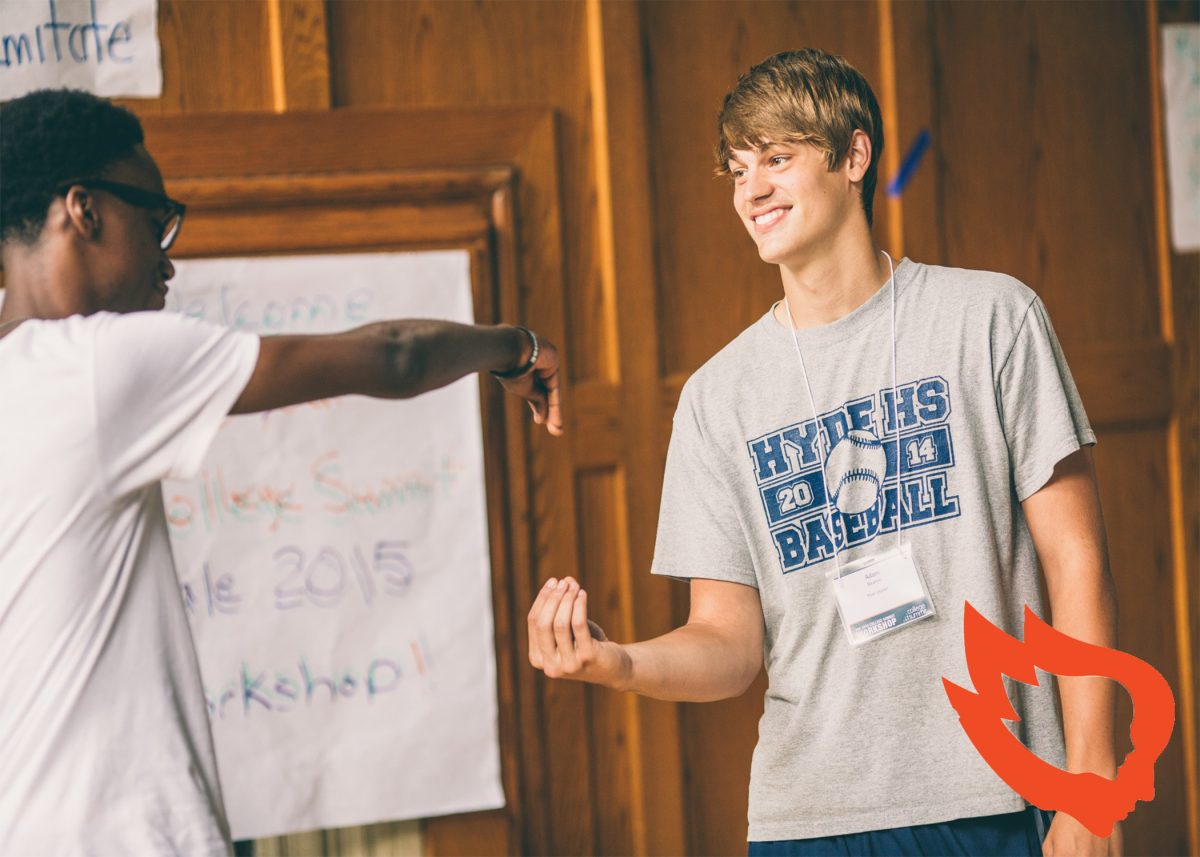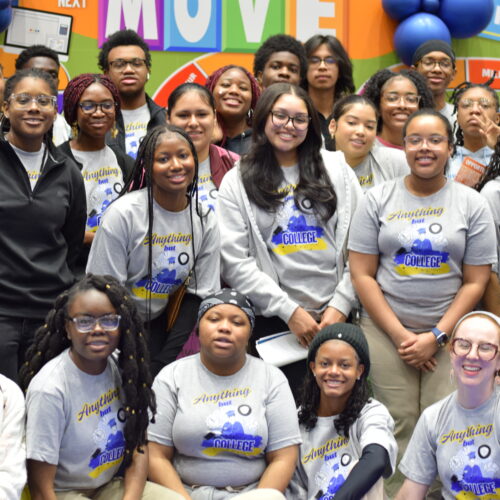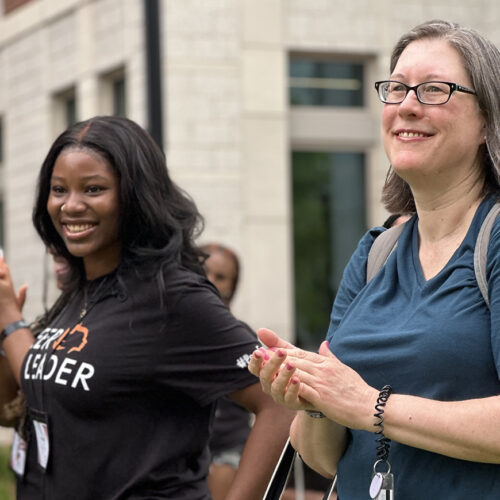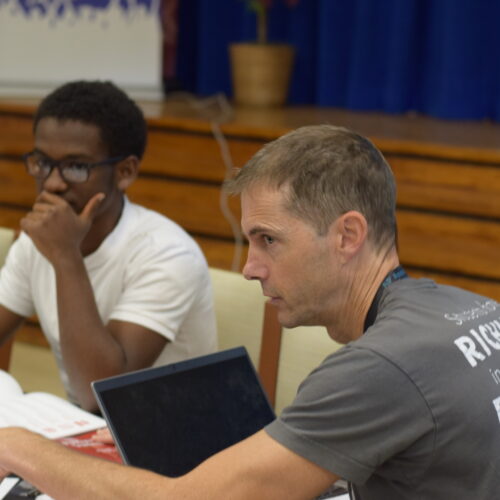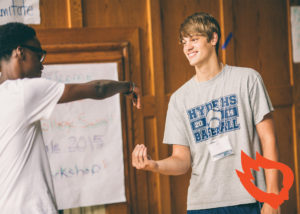 Happy New Year to all of our students, alumni, educators, partners and supporters!
Happy New Year to all of our students, alumni, educators, partners and supporters!
2016 will be the year of student-driven change, where our amazing Peer Leaders retreat in the summer with their coaches and faculty sponsors to plan campaigns designed to create a college-going culture for their entire school.
Lately, I have seen the power and efficacy of peer-led initiatives seemingly everywhere. For instance:
In Education: Psychiatrists at the St. Louis University School of Medicine saw alarming rates of anxiety and depression in their medical students and, working with the administration, instituted school wide reforms including re-organizing the student body into small learning groups to support and guide one another through the rigors of medical education. Leveraging the support of classmates, combined with other academic reforms, decreased rates of depression and anxiety significantly.
In Social Contagion Theory: Sometimes also called Behavioral Contagion or Memetics, social contagion theorists study the way human behaviors and emotions tend to spread through clusters of people who share time and space. Often leading to negative behaviors, social contagion can also be used to explain and to engineer more positive behaviors, like, for instance, preparing to graduate from high school and pursue a postsecondary education. As one of the pioneers in plans are found to be the single best predictor of 4-year college enrollment for . . . low-income urban minority students.”
In Social Media and Social Capital Theory: Nicole Ellison from the University of Michigan, and her colleagues, are will be publishing ground breaking research this month on the efficacy of social networks such as Facebook and Twitter on students from low-income communities as a way to build their social capital. They prove that helping students visualize their own networks to identify connections who either attended college or plan to enroll in college opens up higher quality college knowledge information sources.
In Business: In her book Peers, Inc., Co-Founder of Zipcar Robin Chase explains the purpose of our new collaborative economy: to harness the local power of peer-to-peer service while leveraging excess capacity, whether it be a car in their driveway or an extra guest room, in order to scale rapidly.
In the Military: The military has always deliberately and methodically used organized peer leadership to enforce discipline, culture, and bond units. The management writer, Andrew Hill, noted recently that the citations for the Victoria Cross, Britain’s highest decoration for bravery, illustrated that the honored soldiers were motivated to perform their acts of bravery solely because of their comrades. There are no citations that describe being inspired by strategy, commanders, or even country – only by their love and loyalty to their fellow soldiers.
In Exercise Fads: A new gym, Orangetheory, broadcasts your individual performance statistics in front of the entire class as you exercise as a way to motivate you to stay in the intense workout phase – the so-called “Orange Zone” – for at least 12 minutes of the hour long class.
In New Year’s Resolutions: The experts agree, if you want to keep your New Year’s resolutions, surround yourself with peers who not only enact the healthy habit you seek to acquire but hold you accountable for staying on course.
Finally, and for me most poignantly, in Social Work and Psychotherapy: More than 40 years ago, Dr. Edward Eismann founded a mental health clinic in the South Bronx based on the premise that neighborhood teenagers could actually cure each other. He said: “My belief is everybody has in themselves the capacity to be healers of other people. If you bring people together and help them relate in constructive and positive ways, you elicit from them the kind of healthy responses that bring about change in others. We are all in life to be helpers to each other.”
If I can teach my sons and my students one thing, it is these last words – we are indeed all here in this life to be helpers to each other; and in that release from the frustrations of our own ego and our own drive we actually succeed individually and as a community.
Keith Frome, PeerForward CEO









